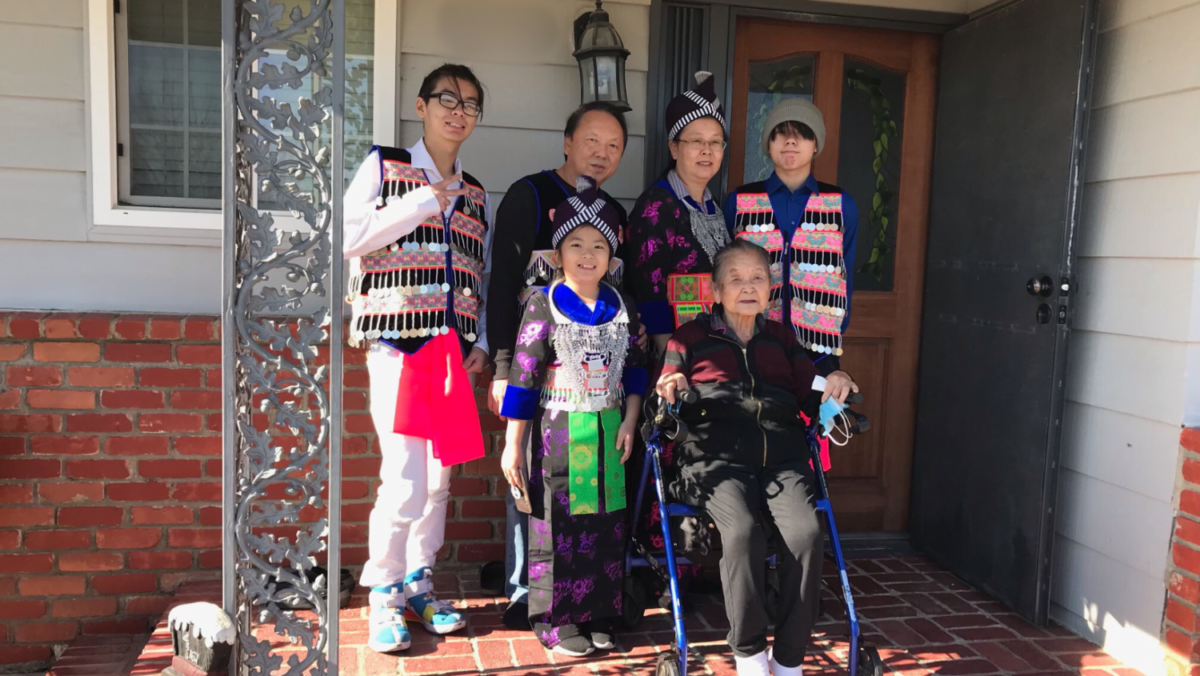CALIFORNIA — For most Hmong families, preferred caregivers are family members because of cultural practices, the patient’s own language preference, and their unique diet.
When there is no choice, however, the alternative is to turn to hired caregivers or trained professionals.
Sher Yang, 77, is a widower who chose to live alone. His children, who all live out of state, have stable jobs that they cannot risk moving closer to him. Sher remained in California because of his relatives and prefers the state’s warm weather.
Wa Yang, who is unrelated, has provided caregiver services for Sher for the past several years through the In-Home Support Services (IHSS) program. IHSS is a state program that pays for in-home assistance so that individuals like Sher can remain comfortably and independently in their own home.
Hmong culture embraces strong family values and respect for the status of older people. As a cultural practice, children — particularly the sons — are expected to care for their aging parents, a narrative that is changing. Several variables contribute to today’s shifting attitudes and values toward older parents and how they are cared for by their children — a factor is the lack of financial resources once they quit their job to care for their parents.
In March 2024, the California Department of Social Services (CDSS) reported that more than 763,000 authorized recipients in the state received IHSS services with an average of 116 hours.
In Sher’s situation, Wa helps with Sher’s day-to-day needs and scheduled appointments.
A typical day starts early in the morning when Wa arrives at Sher’s home to check on him and start their morning routine. A homemade breakfast, usually a rice meal, is the first meal that Wa prepares for Sher which is followed by a routine bath.
Wa will check on the laundry to make sure that Sher has clean clothes and cleans up the house if it is needed. By midday, lunch is another rice meal. Sometimes there is grocery shopping, a doctor’s appointment, or a much-needed visit to the barbershop in the afternoon. Before Wa is done for the day, he makes sure that dinner is ready.
Sher uses a walker to get around so “bathing is the hardest to help with because he cannot walk,” Wa said in-language, adding that “when it comes to bathing, Sher gets embarrassed,” refuse assistance and try to bathe or dress himself.
It is rewarding to help others, especially older people, Wa said, adding thatt it’s more than just a job due to his compassion for older people. He sees and understands both sides of the circumstance — from the children’s side and from Sher.
Sher’s situation is rare but no longer unique as more and more Hmong children face the task of caring for their aging parents.
Wa said that, for now, Sher is happy and trusts that he is getting the assistance he needs. Sher experiences loneliness when his own children don’t come around to visit, but he also knows that Wa is capable and willing to provide whatever help is needed.
The IHSS program provides basic training for caregivers. Wa said that, as part of it, he is prohibited from providing complex medical care or any kind of care that they are not trained in.
He said he not heard of other programs that provide caregiver service training but would be interested in taking advantage of CalGROWS, an extensive caregiver training programs, if it were made available to him.
Individuals enrolled in this program before August can earn up to $6,000 for learning and using new caregiving skills gained through training modules.
Caregivers, including unlicensed care providers, certified home care aides, certified nursing assistants, and unpaid family and friend caregivers who are interested in growing their career, developing skills and learning more about additional training to help them in their jobs can sign up for the program at Calgrows.org.




